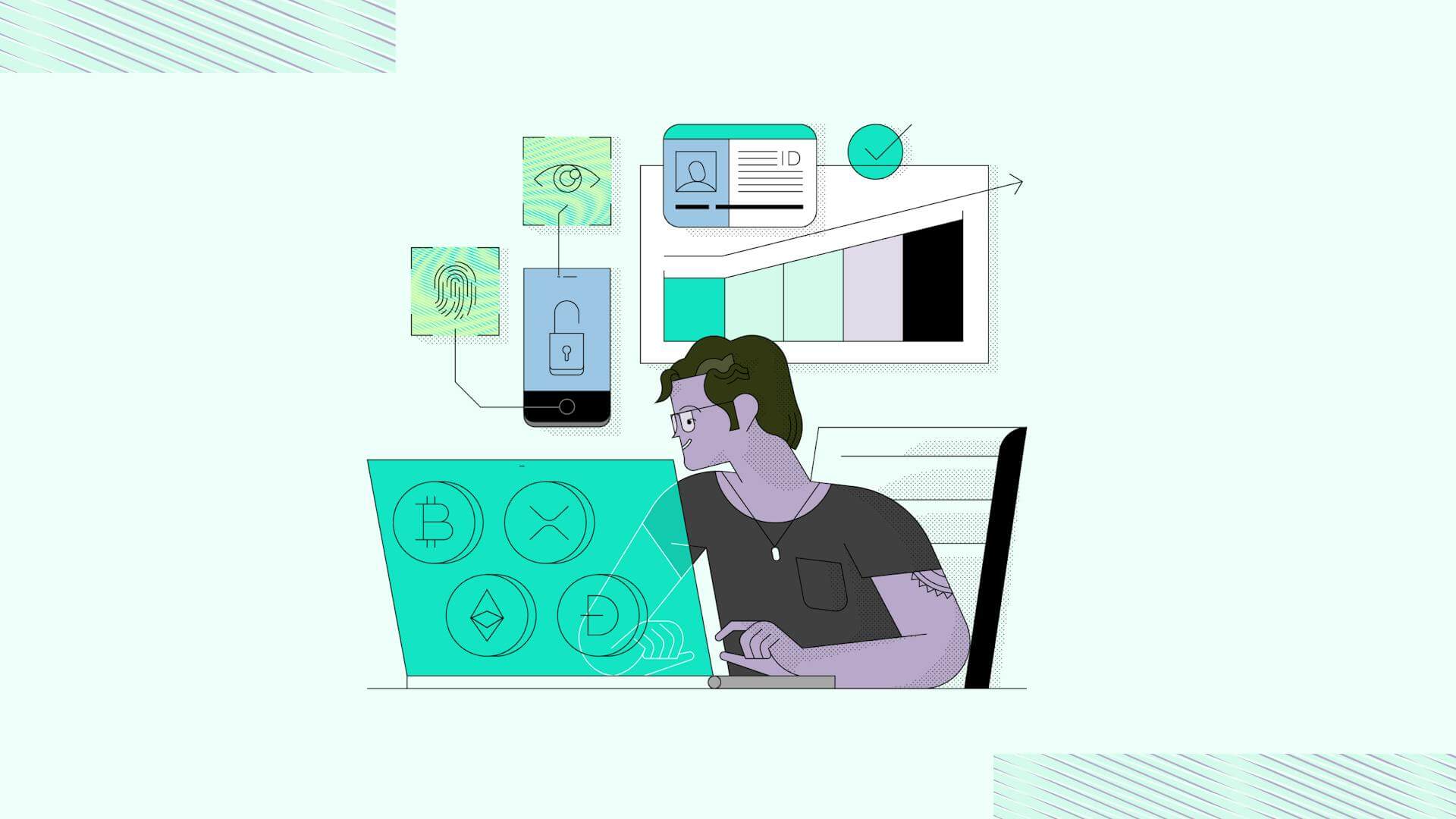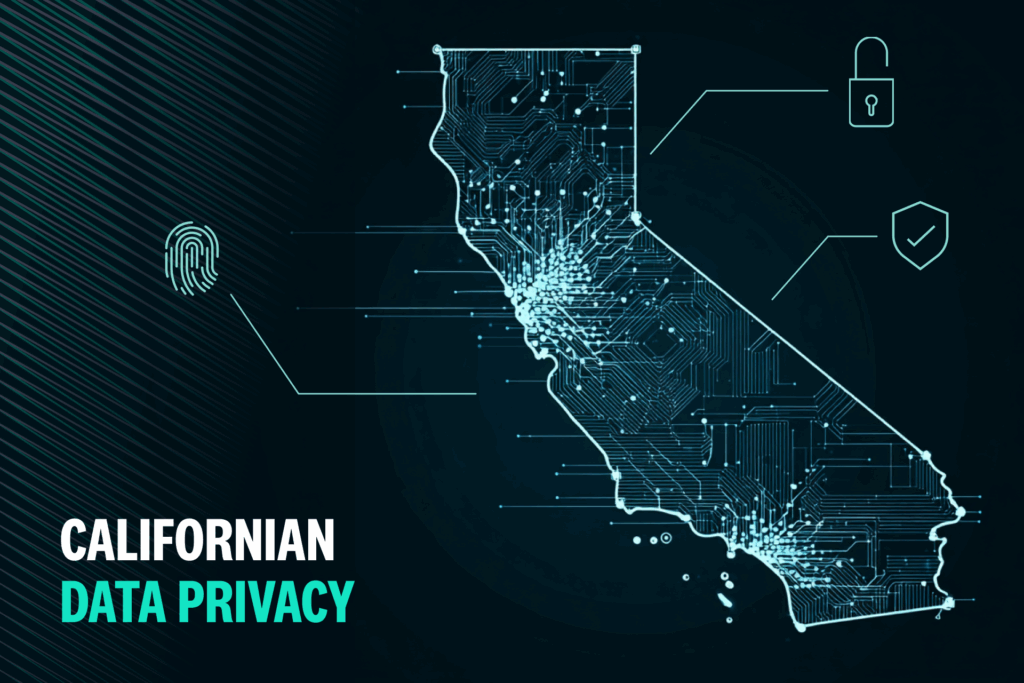Fraud Article
Employee verification: How startups and small businesses can build trust and add talent
Hiring new employees is an exciting opportunity to bring fresh talent and skills to your small business, but verifying their identities and employment history is crucial. Ensuring hires are who they claim to be protects your business’s integrity and security. Here’s a quick guide on effectively verifying new employees’ identities using identity verification software.

Understanding employment verification
Employment verification and employment verification checks are crucial steps in the hiring process that confirm a candidate’s previous work history and ensure they have the skills and experience for the role. This process involves verifying employment dates, job titles, and job duties to confirm the accuracy of the information provided by the candidate. By verifying employment history, employers can ensure that the candidate has the experience and qualifications they claim, which is essential for informed hiring decisions.
Employment verification can be conducted in-house by the HR department or through a third-party background check provider. In-house verification involves directly contacting previous employers to confirm the candidate’s employment details. This method can be time-consuming but allows for more control over the process. On the other hand, third-party providers offer specialized employment verification services that can streamline the process and provide more comprehensive results. These providers use various methods to verify employment information, including contacting previous employers and cross-referencing data with official records.
Incorporating employment verification into your hiring process not only helps verify employment eligibility but also builds trust and ensures you are hiring qualified and reliable employees.
Why employee identity verification is essential
For small businesses, every employee plays a critical role in the company’s success.
According to a Paychex Survey, nearly one-third of employees find the onboarding experience confusing. Slightly more than half, 52% feel satisfied with the onboarding experience.
A single hiring mistake can lead to productivity issues, customer dissatisfaction, or even legal challenges. Verification isn’t just about avoiding pitfalls—it sets the tone for transparency, trust, and professionalism in your workplace.
An employment verification background check is crucial in confirming a candidate’s employment history, ensuring compliance, and building trust.
Thorough verification ensures every hire:
- Possesses the skills and qualifications they claim.
- Meets compliance regulations for legal employment.
- Aligns with your company’s values and commitment to security.
Consider what Dan Westgarth, COO of Deel (one of the biggest HR Tech companies in the world) says about remote identity verification.
“Identity verification is critical, especially when providing a reliable and secure experience for our customers online”
Now, let’s explore the steps to building a secure and seamless hiring process.
6 essential steps for the employment verification process
Step 1: Identity verification
The first step in verifying new employees is to confirm their identity. This can be done using ID verification software, such as Veriff. Veriff allows you to validate government-issued IDs like passports or driver’s licenses quickly and accurately. The software cross-checks the provided information with official databases to ensure authenticity. This step is crucial in preventing identity fraud and ensuring that your new hires are genuine. Identity verification software simplifies this process by providing an automated, reliable, and fast solution, allowing small businesses to perform identity checks without extensive manual labor.
Step 2: Conduct background checks
Background checks are an essential part of the verification process. Employment verification background checks are crucial to ensure candidates possess the experience listed on their resumes. These checks help verify the candidate’s employment history, education, and criminal records.
Conducting thorough background checks can reveal any red flags and ensure the candidate has a clean record. Utilizing professional background screening services or online platforms that specialize in these checks can streamline the process and provide you with comprehensive and accurate information.
Conducting background checks will also help your business prevent fraud from your employees. As a matter of fact, 34% of fraud cases in small businesses are internal/employee-related, and 22% of small business owners have had employees steal from them.
Step 3: Reference checks to verify employment history
Another important step in verifying new employees is to contact their previous employer and provide references. This helps validate the candidate’s work experience and performance. When conducting reference checks, ask specific questions to gain insights into the candidate’s reliability, work ethic, and suitability for the role. Reference checks provide valuable information about the candidate’s past behavior and performance, helping you make informed hiring decisions.
Step 4: Verify skills and qualifications
Verifying the candidate’s skills and qualifications is crucial to ensure they possess the necessary competencies for the job. Contact the issuing institutions to confirm the candidate’s qualifications and certifications. Additionally, skills assessments or practical tests can help you evaluate their abilities and ensure they meet the job requirements. This step ensures that you hire individuals who are not only trustworthy but also capable of performing the tasks required for the role.
Step 5: Compliance verification
Employment eligibility employers must prioritize compliance verification to ensure that the candidate meets all legal and regulatory requirements for employment. Verify the candidate’s work eligibility and ensure they comply with local labor laws. This may include obtaining work permits or ensuring that the candidate has the legal right to work in your country. Compliance verification helps avoid legal issues and ensures your hiring process adheres to all relevant regulations.
Just consider this: North American companies spent $11 billion on anti-fraud technology in 2022, and this figure is expected to surge to $129 billion by 2029.
Step 6: In-person or video verification
If possible, schedule an in-person meeting or video call with the candidate. This step provides an additional layer of verification, allowing you to further validate the candidate’s identity and conduct interviews. In-person or video verification helps you assess the candidate’s communication skills and overall demeanor, providing you with a more comprehensive understanding of their suitability for the role.
Why identity verification matters for remote hires
The Society for Human Resource Management (SHRM) estimates the average cost of hiring a new employee to be approximately $4,700, with expenses potentially reaching 3 to 4 times the position’s annual salary. If an employee leaves within 6 months, the entire investment is lost, forcing the business to start the hiring process again.
Remote work has become a mainstay for many businesses, often involving candidates from different states—or even countries. Verifying a remote employee’s identity presents unique challenges that software like Veriff can overcome.
Here’s why identity verification software is essential for remote hiring success:
- Remote verification: Conduct secure, remote verifications of ID documents, ensuring authenticity without in-person meetings.
- Global compliance: Address international compliance standards and verify work eligibility across borders.
- Enhanced security: Advanced fraud detection protects against identity theft and imposter risks, safeguarding your workforce even when hiring remotely.
- Efficient onboarding: Automated verification accelerates the onboarding process, ensuring new hires integrate seamlessly into your team.
With the rise of remote working, it is also important to make sure you are onboarding respectable workers. According to a recent PwC report, 68% of companies reported new types of fraud and a heightened risk of employee misconduct after COVID-19. Over half of these fraud cases involved employee misconduct or newly emerging fraud. The transition to remote work and reliance on digital communications significantly increased the risk of employee theft of valuable corporate data.
Fun fact: Modern verification tools complete ID checks in seconds, delivering instant results that minimize delays.
Choosing the right provider for employment verifications
Selecting the right provider for employment verifications is essential to ensure the accuracy and efficiency of the verification process. When choosing a provider, employers should consider several key factors, including the provider’s reputation, accuracy, and compliance with FCRA regulations.
A reputable provider will have a track record of delivering accurate and reliable results. Employers should look for providers that have positive reviews and testimonials from other businesses. Accuracy is critical, as incorrect or incomplete verifications can lead to poor hiring decisions.
Compliance with FCRA regulations is another crucial factor. Employers should ensure that the provider follows all legal requirements, including obtaining candidate consent and providing necessary disclosures. This compliance helps protect both the employer and the candidate.
Other important considerations include the provider’s turnaround time, customer service, and pricing. A provider with a fast turnaround time can expedite the hiring process, while excellent customer service ensures that any issues or questions are promptly addressed. Pricing should be competitive and transparent, with no hidden fees.
Employers should also ask potential providers specific questions to assess their capabilities:
- What percentage of employment verifications cannot be verified?
- How many attempts do they make to verify employment information?
- How does the company assess its verifiers’ work?
- Are they compliant with FCRA regulations?
- Do they provide accurate and reliable results?
By considering these factors and asking the right questions, employers can choose a provider that meets their needs and ensures that employment verifications are conducted efficiently and effectively. This careful selection process helps build a trustworthy and qualified workforce, contributing to the overall success of the business.

SECURE YOUR BUSINESS
We can help you onboard customers all over the world and secure your business.
How small businesses can use identity and employment verification software
Identity verification software, such as Veriff, offers numerous benefits for small businesses.
Here’s how you can leverage it to verify the identity of new employees:
A consumer reporting agency can help provide identity verification services, improve efficiency, and ensure compliance with legal regulations during the hiring process.
Automated ID checks:
- Use the software to scan and validate government-issued IDs instantly.
- The software cross-references the data with official databases, ensuring accuracy and authenticity.
Quick verification:
- Enjoy fast verification processes with results delivered in seconds.
- Reduce the time spent on manual identity checks, allowing you to focus on other important tasks.
Scalability:
As your business grows, the software can handle increased verification demands without compromising speed or accuracy.
Enhanced security:
- Benefit from advanced fraud prevention measures integrated into the software.
- Protect your business from identity theft and imposter scams.
User-friendly interface:
- The intuitive design makes it easy for your HR team to use the software without extensive training.
- Seamlessly integrate the software into your existing workflows.
Build a trustworthy workforce with efficient verification
Hiring new employees is more than filling roles—it’s about building a committed and secure workforce that drives your business forward. By incorporating tools like identity verification software and following the six outlined steps, you create a smooth and reliable onboarding process.
Want to see how technology can simplify your employee verification process? Explore tools like Veriff, which is designed specifically to address small business needs.
Don’t leave trust and security to chance. Start adopting best practices today, and enjoy peace of mind knowing your team is built on a foundation of integrity and professionalism.
By incorporating identity verification software into your hiring process, you can streamline and strengthen your employee verification efforts, ensuring a secure and efficient onboarding experience. This technological advantage not only protects your business, but also builds trust with your new employees, setting the stage for a successful working relationship. Veriff simplifies identity verification for growing businesses.
By taking these steps, you can be confident that your hiring process is robust and reliable, paving the way for a secure and prosperous future for your business.
$4700
the average cost of hiring a new employee. With expenses potentially reaching 3x/4x the position’s annual salary.
+68% of companies
reported encountering new types of fraud and higher risks when hiring remotely.
+34% of fraud cases
in small businesses/ startups are internal/employee-related.
Case study: Securing onboarding for high-risk global tech firm
In another example, Veriff partnered with a high-risk global tech firm Crossover to streamline its onboarding processes. This collaboration significantly enhanced the firm’s ability to accurately, securely and fastly onboard new hires, while maintaining compliance with stringent regulatory requirements. By leveraging Veriff’s advanced identity verification technology, the company reduced onboarding time and mitigated potential fraud risks.
By following these best practices, small businesses can ensure a secure and efficient onboarding experience, protecting their operations and fostering trust with new employees. To learn more, explore how Veriff’s Self-Serve platform can simplify identity verification for growing businesses.
Incorporating identity verification software like Veriff into your hiring process allows small businesses to streamline and strengthen their employee verification efforts. Case studies such as Veriff & Crossover show how businesses can successfully leverage technology to enhance trust, improve compliance, and build a reliable workforce.
Listen to a full conversation with Andrew Allen, VP of Marketing at Crossover and explore all Veriff Voices podcast episodes, here.

Working with Veriff enabled us to not only improve the accuracy of our KYC checks, but also to shift it earlier in our process, improving the integrity that our entire product depends on.
Conclusion
Verifying new employees is a critical process that helps small businesses maintain the integrity and security of their workforce. By following these steps—identity verification, background checks, reference checks, skills and qualification verification, compliance verification, and in-person or video verification—you can ensure that your new hires are trustworthy, qualified, and compliant with all relevant regulations. Employment verification can uncover false employment claims, which helps employers identify trustworthy candidates and determine if they are a good fit for the job. Implementing a thorough verification process not only protects your business from potential risks, but also fosters a secure and trustworthy working environment, setting the foundation for your business’s success.
Discover how Veriff makes it easy for growing businesses to implement an identity verification solution by checking out Veriff’s Self-Serve platform.

SECURE YOUR BUSINESS
We can help you onboard customers all over the world and secure your business.














